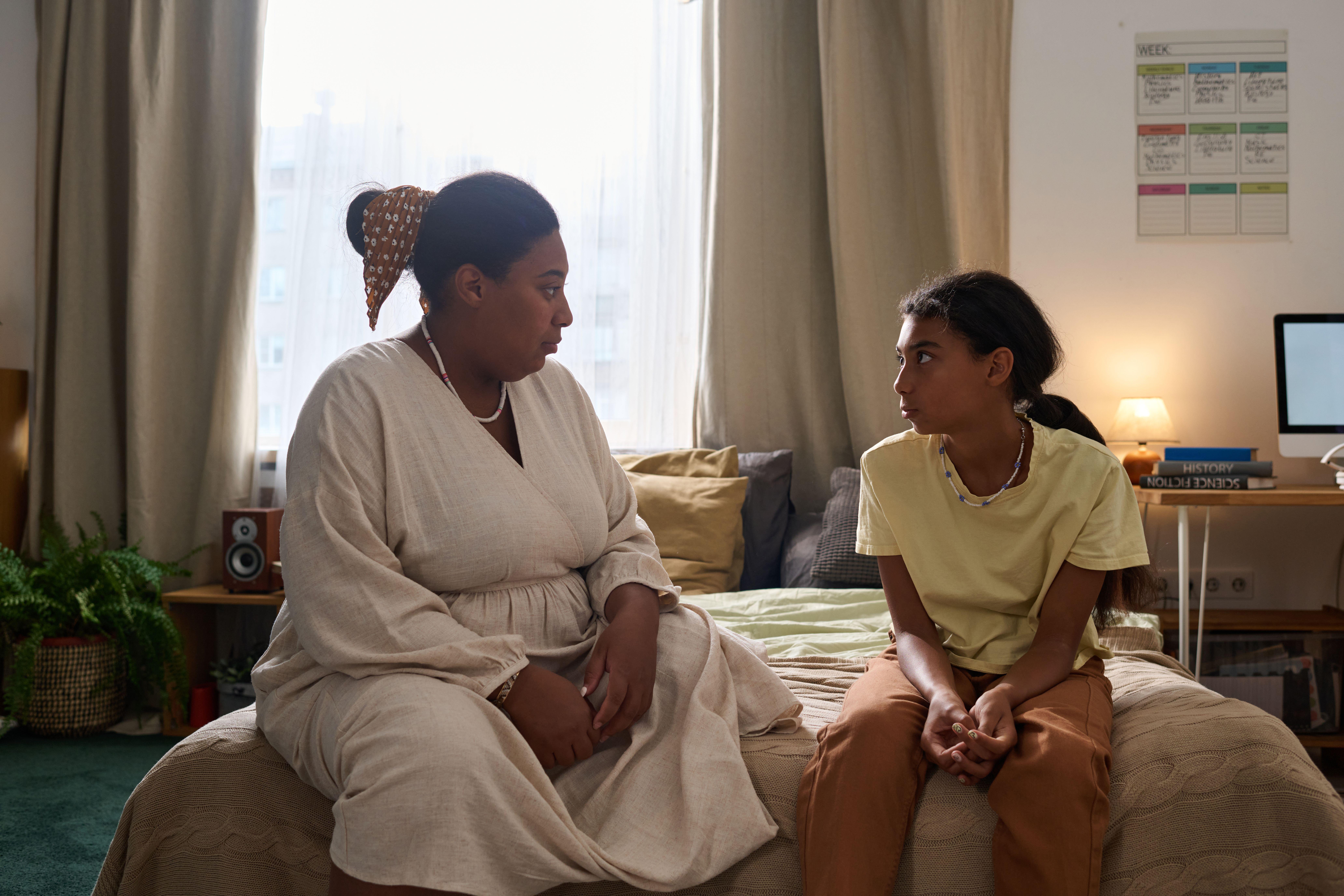Truly support
independent journalism
Our mission is to provide unbiased, fact-based reporting that holds the powerful to account and exposes the truth.
Whether it's $5 or $50, every contribution counts.
Support us in offering journalism without agenda.
Teenagers who are glued to their phones are more likely to be anxious, depressed and suffer from insomnia, researchers have found.
New research published in Acta Paediatrica, which surveyed 657 pupils aged 16-18 across five schools, found that 123 teenagers showed signs of problematic smartphone use (PSU).
More than half (56%) of adolescents with PSU reported symptoms of depression, and researchers also found that adolescents with PSU were 64% more likely to report symptoms of insomnia.
Additionally, 43% of PSU students reported having anxiety symptoms.
Talking to teens about screen time can be difficult, so here are some helpful tips on how to get them to stop using their phones without starting an argument…
Choose your time and place wisely
“Choose where and when to talk to them, for example, not when they are playing,” recommends Liat Hughes Joshi, author of six parenting books, including How To Unplug Your Child.
Having these conversations in the car can work well.

“This is a good time to talk about things that your child might be a little uncomfortable with, because you won’t have to look them in the eye if they’re embarrassed,” Hughes Joshi explains.
Julia Neesam, a cognitive behavioral therapist who has worked with clients on phone use in relation to anxiety and depression, adds: “Try to have the conversation when neither of you will be interrupted and when neither of you is tired or hungry.”
Start gently and ask questions.

“Open the doors [to these conversations] “Ask them questions very gently and don’t make a statement,” Hughes Joshi advises. “It could be, ‘How are you feeling right now about X, Y or Z?’
“It’s about using a friendly tone and not sounding like you’re scolding or about to lecture, but just showing that you’re interested and that you care.”
Set an example

“We know that children tend to follow their parents’ lead, so you can set the example when it comes to screen-free time,” says Matt Buttery, CEO of Triple P UK and Ireland. “The best way to approach this is by modelling the behaviours you want to see in your child.”
Help them find a hobby.

“Talk to them about what they like and ask them if they want to start something new,” Neesam recommends. “Use what is happening at the moment, for example the Paris Olympics, and talk about the inspiring people who are taking part and how much they benefit from their chosen sport.”
Susan Dunigan, founder of The Enlightened Parent, adds: “Going somewhere for the first time and meeting new people can be anxiety-inducing, so finding ways to reduce it will be a good sign.
“Make it as easy as possible for them to try it for the first time, perhaps by offering to drive them and pick them up.”
Set limits

Stand firm on your non-negotiables, but make sure your teen feels involved in these decisions.
“For first-time phones, establish a contract or agreement on how they should be used, including time limits, screen-free activities and places where phones should not be stored, such as in the bedroom at night,” Dunigan advises.
“As they get older, ask them what boundaries they think you should put in place to keep them safe and suggest some ideas yourself.
“Once you’ve come up with one or two ideas, start implementing them knowing that your child may find it difficult, but that you are there to support them.”
Plan screen-free time

“Simple, cost-effective things like going for a walk, playing a game together or having a picnic can be much more fun alternatives and create lasting memories,” says Buttery.
Do not give up
“It may seem like a mountain to climb… but don’t give up,” says Hughes Joshi. “Don’t be defeatist and think:Oh, teenagers are like that and there's nothing I can do.“Because there are things that can be done if you use the right tone and work as a team.”












